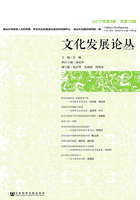
Displaying Regional Features and Exploring Regional Characteristics: An Interview with Prof. Feng Tianyu
Abstract: The transition of ancient China's economic and cultural center from the North to the South and from the West to the East is a pretty clear trend as well as a historical process to show the all-round regional development of Chinese culture. The transition of the cultural center includes both the time dimension featuring the cultural evolution with epochal traits and the spatial dimension featuring regional cultures. While the former dimension is the research focus of cultural history study, the latter dimension is emphasized by cultural geography. Epochal and regional traits are the two relevant qualities with mutual interdependence during the development of culture. Only by comprehensively considering both two qualities and exploring the interaction between them can we understand the depth and width of human creation culture. It is necessary to explore the regional characteristics of ideological culture for the study of Chinese ideological history. From ancient times to the present, human culture has always been a kind of regional culture. It cannot be denied that individuality can reveal general character, which is the rule of cultural history. The relations between the two qualities are the unity and diversity of historical and cultural development. The uniqueness, diversity and unity of cultural regional distribution consistently add vigor to the culture to stimulate its development.
Keywords: Cultural History; Integrity; Regionality
About the Author: Feng Tianyu(1942 -), Senior Professor of Humanity and Social Sciences in Wuhan University, Head of Research Center of Traditional Chinese Cultural Studies in Wuhan University. Magnum opuses:The Cultural History of Ming and Qing Dynasty, The History of Wuchang Revolt in the 1911 Revolution, Critical Biography of Zhang Zhidong, Practical Ideology in Late Qing Dynasty, Deconstructing Autarchy: A Study of the “New People-first” Idea in Late Ming and Early Qing Dynasty, Qian Suiwan's Tour in Shanghai: Observing China in 1962 from Japanese's Eyes, The Origins of the New Expressions: the Cultural Interaction among China, Japan and Western Countries and the Terminology in Modern Times, The Spirits of Chinese Ancient Classics, A Study on Feudalism, Outline of Chinese Cultural History, etc. The published works have been awarded China's National Book Award, Outstanding Achievement Award of Humanity and Social Sciences by the Ministry of Education, Outstanding Achievement Award of Philosophy and Social Sciences by Hubei Provincial Department of Education. Besides, many his published works have been translated into English, Japanese, Spanish and Korean. E-mail: tyfeng@whu. edu. cn.
Nie Yunwei(1955 -), Professor of Chinese Language and Literature, Hubei University. Research interests and specialties: aesthetics, literature theory, and ideological history. Magnum opuses: Biography of Einstein, The Power of Ideas, etc. E-mail: nieyw 55@126.com.